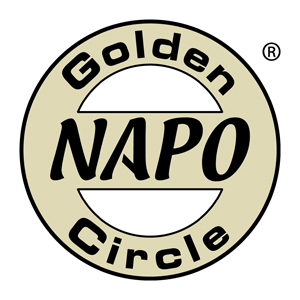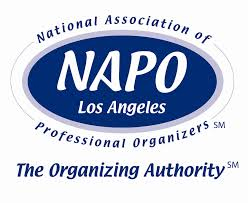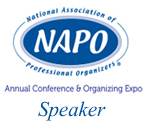The Mass-Media Madhouse
(Press-Central For Handy Soundbites, Useful Info,
And A Good Wet-Your-Pants Laugh)
Home / The Mass-Media Madhouse
(Press-Central For Handy Soundbites, Useful Info,
And A Good Wet-Your-Pants Laugh) / What A Long-Form Interview With Ramona Looks Like
What A Long-Form Interview With Ramona Looks Like
Being Fruitful Without Multiplying — Stories From Around The World
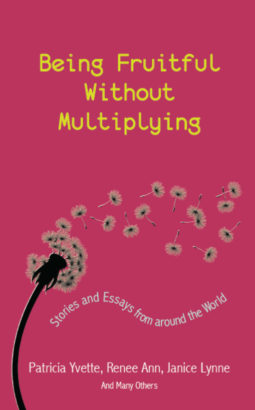 Society teaches us that women who do not bear children will never feel complete. But there are many whose happiness is found through other forms of creativity — this book gives them a chance to be heard.
Society teaches us that women who do not bear children will never feel complete. But there are many whose happiness is found through other forms of creativity — this book gives them a chance to be heard.
We give voice to individuals everywhere who have chosen not to bear children. We are grateful to our generous contributors, willing to reveal the intimate details of their private lives. We were comforted by hearing the stories of others who share our views — we hope others will be comforted as well.
Have you ever been asked whether you have children?
As I travel the country as a full-time RVer, folks often ask if I have children. When I respond that I’m “childfree,” most people have no clue what that means. I explain that I don’t want to have children — an entirely foreign concept to the majority of Americans. Some are fascinated by the possibilities of life without kids, but others can’t even begin to understand why I would make such a bizarre life choice.
How do you respond?
I like to tell people that I had a maternal instinct once when I was about twelve — but then it went away and has never bothered me since. Perhaps it’s genetic. My friends couldn’t wait to be old enough to babysit, but I didn’t want to look after other people’s kids. Even the good ones were too much work — keeping them entertained and out of trouble until their parents came home.
Did you have dolls as a little girl?
Oh sure, I played with dolls, but I always preferred the adventures of my adult Barbies to babies that cried and peed and spit up. Barbie’s pink glamour camper made a lasting impression on my young mind — that must be why I chose to travel instead of procreate!
How do you respond to accusations of “child-hating?”
It’s not that I dislike children as a species. I’m quite fond of the “good” ones — laughing toddlers and sharp-witted adolescents and teens with strong, independent personalities. But I have very little tolerance for kids who are allowed by their parents to act like brats — and never once did I feel the urge to take one home with me. I’m completely content to play with them, get them wound up, and give them back to their parents. I compare a child to a Picasso hanging in a museum. I don’t have to own it to enjoy it!
How does child-freedom impact your romantic relationship?
Fortunately I found a man who has always agreed with me about kids — his first birthday gift to me after we started dating was a vasectomy, and that was the best present I’ve ever been given! The thing is, he’s great with kids. All the little ones love “Uncle Ben” — he plays cars and blocks and hide-and-seek with them (while I sit on the couch with mom drinking a glass of wine). He just doesn’t need any of his own to be happy.
What has child-freedom allowed you to do?
Ever since I hit the road as a full-time RVer, I’ve been having too much fun to even consider cluttering things up with kids. I go where I want, when I want, without worrying about school vacations and truancy officers. I can eat strange, exotic food instead of chicken fingers. I live simply, in less-than-200-square feet, entirely sans kindercrap. I can focus on my own writing and art projects instead of spending my time attending PTA meetings. I’ve traded diapers and preschools and college funds for freedom, leisure time, and personal fulfillment. I can’t imagine having to park in one place for the next eighteen years, putting my dreams and goals off until the nest was emptied, missing out on the amazing experiences I have regularly while traveling the country. Call it selfish if you want. I call it “living the life.”
Secrets Of Professional Organizers — The Domino Effect
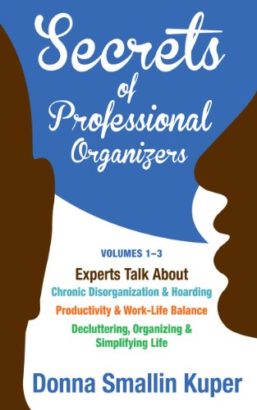 After many years of conversing with and learning from other organizing experts, it occurred to me that it might be interesting to record and transcribe interviews with some of them. These people have dedicated their careers to helping others change their lives for the better through decluttering, organizing, and simplifying.
After many years of conversing with and learning from other organizing experts, it occurred to me that it might be interesting to record and transcribe interviews with some of them. These people have dedicated their careers to helping others change their lives for the better through decluttering, organizing, and simplifying.
While their approaches, personalities, and specialties vary widely, they share a common goal — to teach themselves out of a job. Please meet Ramona Creel — organizer, entrepreneur, fellow full-time RVer, author of ‘The Professional Organizer’s Bible,’ and all-around interesting person.
What’s your primary area of expertise in the organizing industry?
When it comes to hands-on work with my clients, I’ve always been a generalist — a little bit of this, a little bit of that, homes, offices, paper, time, storage, clutter, finances, moving, kids, seniors, you name it. If I did the same thing every single day, I would get bored to tears!
I‘m with you. But you must have a unifying thread in your work.
With everything I do, my overarching philosophy is simplicity. I‘m not into color-coding just so we can make your closet look pretty — or putting papers in a file just to get them off your desk. I want to go deeper. Why has your life gotten so complicated? What can you do to make it less stressful?
Now where does that come from?
My approach stems from the fact that I’ve gone in this odd direction in my own life and become a full-time RVer. Even though society’s always telling you bigger is better, it’s not that hard to choose a smaller, more satisfying life. I’ve done it myself — downsizing, simplifying, making things easier. I try to practice what I preach and spread the gospel of “have-the-life-you-want-not-the-one-you-were-handed” wherever I go.
When did you realize that you were a minimalist?
I’ve always been a minimalist. But when I decided to move into a 29-foot Airstream, I still got rid of a ton of stuff. I was amazed at how much I had accumulated even though I’m a Professional Organizer, a minimalist, and a simplifier. We all end up with so much (pardon the language) “crap” we don’t need. It’s insidious. It just sneaks up on you, and you don’t realize it’s there until you decide to clean out a space, and then you wonder where it all came from!
Tell me about the process of becoming a full-timer.
I was feeling quite discontent with the whole “owning a house” thing. I bought a home later in life than most people do, and had done a ton of work fixing it up. I joke that I became an RVer because I didn’t like doing yard work, but honestly — the whole home ownership scenario didn’t click with me on a lot of levels. I was paying for a mortgage, utilities, and property taxes when I was rarely home — while I was traveling, I was also paying travel and hotel expenses and all that. It sucked!
And how did you land on RVing as a solution?
Anyway, I was driving down the road one day thinking about how much it sucked, and I saw an Airstream coming toward me on the other side of the highway — I thought, “Oh, yeah!” It was immediate, that click! Being the jump-off-the-deep-end kind of girl that I am, I got all caught up in the idea that I was going to do this full-time RVer lifestyle. I had originally thought it would take three, four, maybe five years to get that point. But within six months, I had found the perfect Airstream and started downsizing started downsizing — you can’t take everything from an 1,800-square-foot house with you when you have less-than-200-square feet in your rig. And I simply refuse to put things in storage. I believe wholeheartedly that if you own it you need to use it and enjoy it — if you don’t, pass it on to someone who can.
What did you do with all of your stuff? Sell it? Donate it?
Craigslist was my best friend for about a year and a half. And even though I’ve done yard sales and consignment my whole life, I learned so much about the right and wrong way to make REAL money off my discards. When they’re cleaning out, a lot of folks assume that they have to give everything away for 25 cents at a yard sale — very much not the case! I made $16,000 selling everything I didn’t take with me in on the road. That’s what I did for a year and a half while fixing up the Airstream and getting all my full-timing ducks in a row.
What advice do you have for people who want to simplify?
My clients joke that they pay me to ask all those really annoying questions that they never want to ask themselves. “When did you last use this When will you use it again?” I love to probe about what purpose this thing serves in their lives and how it makes them feel. Is it standing in the way of something else that they would like to be doing? If it is, why are they letting it serve as a roadblock? I think that level of awareness is what we are lacking most in this society. Its the reason why the clutter shows up in our homes, and it’s the reason why the overwhelm shows up in our schedules. When people get to this point, they feel like they’re trapped — buried by their stuff, their house payment, or job, or anything that gets in the way of simplifying their life.
What’s your initial step look like with a client?
The very first thing you have to do before you start making major changes of any kind is to take a good, hard look at what you want your life to look like — and think about why it doesn’t look like that now. What needs to be removed or added to bring it into alignment? That kind of self-examination is scary. You suddenly have to look at all these dreams that you’ve shoved to the side for one reason or another. The trick to simplifying is deciding what is truly important, what’s truly a priority for you — and what you need to let go of to get what you want. That’s hard for most people to do without a little bit of help!
Can you talk about helping a client achieve success simplifying?
Oh, gosh. So many way folks have had an “Aha!” moment while we’ve been working together. I was going through one client’s house, talking about things she needed and things she didn’t. All of a sudden, she looked around and said, “Do you know why I have all of this stuff? Because I have all this space to fill.” She had this huge house, and you know how people are these days. They have these massive, million-square-foot houses that are just way bigger than anybody needs. It wasn’t that she got all of the stuff because she felt like she needed it, or was filling a hole in her life or anything like that. It’s just that she had empty space, and she couldn’t stand the space looking bare.
So what did you do?
We discussed the concept of her downsizing her life. She ultimately moved to a much smaller house, much closer to her job, which was pretty sweet, because she didn’t have that big commute every day. She saved a ton of money on her mortgage payments. She didn’t have to work as many hours and, of course, got rid of so much junk that she didn’t need. She really pared it down to just the things that she loved — the beautiful, useful, or loved items. That’s the William Morris Arts And Crafts Movement mantra that I love to teach my clients — is it beautiful, useful, or loved? If not, why are you keeping it?
Sounds like your work is about getting at the core of things?
People think organizing is about setting up a space, looking at your calendar, or doing something with your filing system. But if you’re doing it the right way, you get this massive domino effect going, and that’s what I love seeing with my clients. They think I’m just going to move the stuff around, and but what I do affects their entire existence in ways they could not have imagined. They really, truly end up with a better quality of life — and it starts with that one tiny action. Usually the stuff is the tangible signal that something ELSE is out of whack in your life. That’s what people see, and that’s what they want to tackle. But, if they’re really, really paying attention to all the underlying factors, it going to affect everything, and it’s wonderful to watch.
After economic downturn, is there a trend toward simplification?
It’s interesting because sometimes it happens after a downturn in the economy, and sometimes it happens after a really prosperous period. Thoreau sought simplicity in the woods as a direct response to the industrial revolution, and then the Arts And Crafts folks followed in his footsteps. Mechanization brought with it a big boost of prosperity — but when we have prosperity, risk giving up what’s really important in return for material goods. So we start trading more of our time for a job that pays us more money, but also requires more hours. We buy a bunch of stuff that we don’t need, and that we’re never at home to enjoy.
A vicious cycle?
Sure, but it always circles back around. The second time was thanks to the hippies — their “back-to-homesteading, back-to-the-earth” movement was in response to a period in the 1950s when we had big-time consumerism. People wanted the color TV, the car in the garage, and the home in the suburbs. Then, in the 1960s, folks bucked that trend and went in the other direction.
But what about the conspicuous consumption craze of the 80s?
In the 1980s there was a lot of prosperity again. That started another round of voluntary simplicity in the 90s and 2000s. That’s what I see. Every time we get a little too big for our britches, we start to recognize that the stuff, the money, the job status, and all of that are the most important things in the world. You’ll see similar trends in a difficult economy — folks looking for ways to trim budgets. But the motivation is different. It’s more out of necessity and desperation than a conscious choice to head in a more productive direction as a society.
And you see that as an important distinction?
I do. I love it when I see people embracing voluntary simplicity. I love it when bookstores are full of self-help guides on on simplifying your life, people are talking about it on TV, and it’s in magazines — because it’s all about awareness. And the more you have folks discussing these issues (rather than asking how big your house is and how many cars you have), that’s when we’re truly realigning our values.
What impact will millennials have on the simplicity movement?
Well first off, I don’t like making broad assumptions based on labels. I am Generation X. What the hell does that mean? Can you characterize me based on my birth year? Presume I’m like everyone else in my cohort group. Not hardly! But I will say that one thing that I find really disturbing about younger generations is this “plugged in from birth” trend. This is a huge destroyer of simplicity. I’m talking about people who can’t carry on a conversation without simultaneously texting, tweeting, and watching YouTube all at the same time. They can’t make eye contact. They don’t know how to finish a sentence, because they’re used to speaking in 140-character soundbites. I think you need to be able to walk away from that stuff to truly simplify your life. If you’re constantly plugged in and you’re feeling the pressure to always be connected, that’s not a simple life. That’s not even close.
So, you connect simplicity with being present in the moment?
Oh, very much so. Don’t get me wrong, I love my electronics. The thing that’s so joyous about the modern age is that we could not have lived an RV lifestyle without all of this gadgetry and connectivity. As long as I have an internet connection and a cell phone, I can help clients to simplify their lives, and it also allows me to stay in touch with friends that we’ve made all over the country. But we have lost any concept of moderation when it comes to technology these days. That’s going to be the next simplicity backlash — the backlash against how insanely connected everybody feels like they have to be all the time.
Why do we hear less about this trend from the media these days?
Because we’ve gotten used to it. We don’t notice that it’s a problem anymore. It’s commonplace, a way of life. It’s what we’re used to. That’s the most frightening thing is when we get used to things that are killing us, that are not good for our society, and not good for our continued growth and evolution. It’s like when you have chronic pain and then you don’t really pay attention to it as much, because it just always hurts — it’s become the norm. That’s what is going on with technology. We don’t see it as a problem anymore. It was only an issue when it was new. It’s not new anymore.
You mention helping people from the road. How does that work?
I have different ways I work with people while I am traveling. When I’m parked in one place for a long period, I’m more than happy to slip into traditional Professional Organizer mode where I take on long-term projects — whole houses and big offices that require follow-up appointments to really fine-tune systems, clean out all of the clutter, and do a lot of hand-holding with my clients the whole way through. I do love that. But when I’m traveling and only in town for a few days or weeks, I do what I call a “drive-by.” If you’re in an area that I’m passing through, and you want me to spend a day to get your garage in order, or set up a filing system, or organize your kitchen, or work through some time management issues, I’m more than happy to do that. What I can’t do is work with a chronically disorganized person, or someone who has a hoarding issue, because I’m just not there long enough.
That completely makes sense.
The other option I have is virtual organizing. Someone from another part of the country can send me their photos and descriptions of what is going on. Then we get on the phone or skype, and they can point the camera around and show me what is going on. We work out an action plan for tackling the clutter or the time and paper issues. That is exactly what would happen if I were physically with them. I tell them what steps to take and what tools to use, and they do the manual labor instead of paying me to do that. It’s more affordable, because they don’t have to foot the bill for quite so much of my in-person time. They can get expertise, the same results, because it’s all about knowing what to do and what tools to use. The nice thing about it is that I can work with anybody, anywhere and that’s pretty nice. I enjoy that.
What would you say to a potential full-time RVer?
I have run across so many people who say to me, “Man, I would love to be doing what you are doing, but…” and there’s always a big “but” in there somewhere. My first response to say (just like Pee-Wee Herman) “let’s talk about your bit but” — quite often, it is having a really hard time letting go of the bigger life. Most have been convinced somewhere along the way that they need the big screen TV, the pool table, four guest bedrooms, a room for the office, a room for this, and a room for that. Part of the process is re-examining whether those are wants or needs, and how important they are to you compared to what you would get in return for downsizing.
So you help folks decide what they can live without?
That’s the thing about downsizing and simplifying your life. It is not about living without. There is nothing in my life that I need or want that I don’t currently have in this lifestyle. If I want to play Guitar Hero, I’ve got it. If I want to pull out a djembe and participate in a drum circle, I can do it. When we dress up like fools, I’ve got the corset. And the pirate hat. And the body paint. There’s nothing I need that I don’t have — but I did let a bunch of other stuff that served no purpose in my life go (including the house) to have these things that are priorities in my life. It’s all about knowing what you want and how downsizing will allow you to get there. When you do that, cleaning out becomes the most enjoyable activity in the world — because you know you’re making room for the life you always wanted.
Then why don’t more people follow your example?
A lot of Americans don’t want to examine that side of things, because it’s scary when you start questioning a lifetime of misplaced priorities. It’s hard to admit that you traded your dreams for a flat screen and a dishwasher. It’s hard to walk away from all that “stuff” when you’ve built your identity on what you own.
What do you identify with?
I don’t collect things — I collect experiences. One of the books I am working on is a travel book my year-long trip from Key West to Nova Scotia. I cannot even begin to tell you all the amazing experiences I had — everything from getting to raft on the Shubenacadie River off the Bay Of Fundy (where the tide rises and falls by 40 feet twice a day), to taking a glider flight over Acadia National Park, to swimming with a sea lion, to eating a grub worm at the Ghanaian embassy. (I don’t recommend that one). These are all once-in-a-lifetime experiences that I would never have had if I had let stuff get in the way. I would much rather have all of that than a collection of Hummels or a Maserati or a closet full of Jimmy Choos. I’ve made it a priority to go, and see, and do. Each person has to figure out what their own priorities are — but I guarantee you that when folks look deep enough, they’ll find it’s not that shelf full of stuff.
Is there anything else you would like to add as we wrap up?
Large thumbs-up to the hitting-the-road lifestyle. I am trying to get a whole caravan of us together to simplify, travel, and enjoy the country.
Sounds good. See you on the road!
QlubbHouse Expert Series — Organizing As A Way Of Life
 Welcome to the QlubbHouse — a place were we will share tips, best practices, and stories related to starting, managing, and growing groups.
Welcome to the QlubbHouse — a place were we will share tips, best practices, and stories related to starting, managing, and growing groups.
Today, we’re pleased to discuss how to get your group better organized with NAPO Golden Circle Member and veteran Professional Organizer Ramona Creel.
How did you get into the organizing business?
I was a Social Worker in my previous life. I ran a welfare-to-work program at the Atlanta Housing Authority, and I found myself in the position of “all-purpose go-to resource gal” -– when my clients needed education, health care, transportation, job training, child care, whatever, I could find it for them. I’ve always been drawn to the “helping” professions, I’ve always enjoyed being a problem-solver, and I’ve always been naturally anal retentive (a defense mechanism after years of living with a slightly-hoardy packrat mother) — so when I decided to start my own business in 1998, organizing was the perfect match.
What is your organizing philosophy?
I take a very holistic view of organizing — it’s more than just having a tidy desk or a neat closet. Getting organized is about getting your priorities straight. It’s about deciding what you want most, structuring your life so you can have that, and being willing to let go of the rest. It’s about making those hard immediate decisions that lead to a better quality of life in the long run. It’s about learning to draw healthy boundaries and say “no” in order to protect your peace of mind. It’s about regaining control over your finances, eliminating debt, and releasing yourself from the compulsive need to acquire.
When should you consider hiring an organizer?
When you’re struggling with the paper piles, you’re buried in clutter, your day is eaten up by time wasters — you wish you could be a little more productive, a little more in-control, a little less stressed, and you can’t seem to make it happen on your own. There’s no point in continuing to bang your head against a wall, when you can have a professional teach you the right kinds of systems and get you there faster than you would on your own. Hiring an organizer is like hiring a personal trainer or a nutritionist or even a psychiatrist. If you can make the changes necessary to achieve the results you want on your own, great – if you can’t, you ask for help.
How do figure out which solutions will work best for each client?
Part of my assessment process is paying attention to the physical, verbal, and non-verbal clues that person behind, telling me where the real problem lies — and quite often, the core cause of their disorganization is something totally different than what they think! The other part is experience — having seen that situation before with different kinds of clients, knowing what works and what doesn’t for each personality type and lifestyle. That’s the value of bringing in a experienced professional instead of a newbie — they don’t have to play the “trial and error” game to find the right system for you.
What are the basic steps you go through every client?
The first is purging — getting rid of any unnecessary paper/stuff and appointments/responsibilities that are clogging up the system and creating clutter. Then we separate whatever we’re dealing with into meaningful categories — whether it’s types of stuff that need to be stored together, creating systems for tackling “action items,” setting up filing for the piles of paper, organizing e-mails on your computer, dividing up your day into blocks of activity, or breaking a big project up into bite-sized steps. There’s usually some sort of consolidation — combining those 93 different to-do lists into a single master list, pouring four partial bottles of shampoo together, gathering up all the shoes in the house and storing them in one place. Containerizing is huge — putting like items together in a set place where they can be easily located (whether that’s a tub or a drawer, a paper/electronic folder, a document or a to-do list). And finally, tons of asking — lots of questions about everything. When did you last use it? When will you need it again? What purpose does it serve in your life? Is it replaceable? What’s the worst thing that would happen if you got rid of it?
What is your clients’ biggest obstacle to getting organized?
Disorganized folks aren’t very good at carving out space in their schedules for themselves. They can cram in 53 different committee meetings, work late every night for the boss, and take their kid to a dozen extracurricular activities a week — but ask them to block off some “me” time and they go into guilt spasms. Many haven’t taken a day off (much less a full-on vacation) in years! So asking them to see the value in setting aside a couple of hours to improve their own lives can be a challenge. However after that first appointment, they understand how vital this is to their mental well-being. They get hooked, they get greedy — and I never have to twist their proverbial arms in the name of self-care again!
What’s your advice for folks who can’t find time to get organized?
What if I said, “Gee, I just can’t seem to fit in brushing my teeth, what with all my other commitments?” Organizing is the same way. You don’t find time, you make time. It isn’t something you fit in after all of your other commitments — it’s a habit, something that you build into your daily routine. “Getting organized” may be a one-time activity, but “staying organized” is a way of life — like healthy eating or frugal spending or daily exercise. Eliminating frustrations, reducing stress, maximizing your productivity and sense of satisfaction, these are vital to your quality of life. If you’re doing it the right way, maintaining order and simplicity should become as ingrained a behavior as remembering to breathe.
What has been your toughest job so far?
A single mom with ADD who had two young sons with ADD. We could set up every fabulous easy-to-manage system in the world, we could simplify her life until the cows came home — she still had too many responsibilities on her plate to be able to manage them all on her own. This client illustrated the fact that sometimes you need more than organizing — some folks require ongoing help (like coaching or a housekeeper or an administrative assistant) to stay on top of it all.
Have you ever met anyone who was too organized?
I’ve worked with folks who were compulsive, but that’s not the same thing. Continually rearranging your stuff or obsessing over unimportant details isn’t organized — it’s a waste of time. Organization is about figuring out what works. Once you have a solution, there’s no reason to keep fiddling with it, trying to make it better. Being organized also means knowing when to STOP organizing.
How do you know when a group of people are organized?
When they function effectively enough to allow them to do the thing they actually gathered for instead of always dealing with administrative details. The right systems allow a group to spend their time on their work or play or whatever their purpose is, without chaos or confusion. If that’s happening and little details aren’t falling between the cracks, they’re organized.
Any advice to help a struggling group be better organized?
Communicate! The biggest cause of disorganization in a team is failure to speak up about what’s working for you and what isn’t. Folks are so scared of sounding like a complainer or insulting another person or making the leader angry, that they aren’t honest about what they need — but if you don’t speak up when a system isn’t functioning properly, it hurts everyone. Learn how to open your mouth when something about the group dynamic is dysfunctional, and everyone will benefit.
How can one group member get another to be more organized?
They can’t — you can offer suggestions and assistance, you can serve as a positive example, but you can’t MAKE someone else get organized. They have to a) see the benefits to getting organized, b) see that their current situation isn’t working, and c) be willing to change — if any of those factors is missing, don’t waste your time.
Priceless Business Wisdom — Expert Insights On How To Create More Success
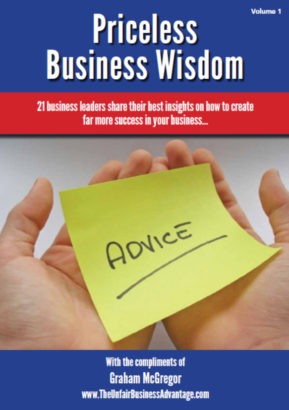 I was invited to join a full score of experts and industry leaders from around the world in sharing their best advice for a business success compendium.
I was invited to join a full score of experts and industry leaders from around the world in sharing their best advice for a business success compendium.
I’m quite certain poor Graham McGregor (the lovely gentleman who interviewed me) had no clue what he was getting himself into when he sent me that initial e-mail — but I hope at least I made him laugh as he typed all this up.
What type of business are you currently involved in?
I joke on my social networking profiles that my official title is “Renaissance Woman” — I have too many interests to run just one business at a time! I’m all over the board (an artist, a speaker, and a writer on top of everything else). But here’s a brief description of the three major consulting hats I wear:
- regain-control-over-your-life professional organizer — I’ve been helping folks to create order and better manage their time/space/paper (both at home and at work) since 1998. I’m a Golden Circle Member Of The National Association Of Professional Organizers many times over.
- have-the-life-you-want-rather-than-the-one-you-were-handed coach — Since I sold everything I owned and hit the road as an RVer (living, working, and traveling year-round in a 29-foot Airstream), I’ve also added simplicity/accountability coaching to my repertoire of butt-kicking-excuse-imploding-obstacle-removing activities — along with clutter/productivity coaching, financial coaching, healthy lifestyle coaching, even full-timer coaching. (You name it, I am happy to hold folks accountable for achieving their goals!)
- take-your-business-to-the-next-level mentor — I also work with other organizers, small-biz entrepreneurs, and self-employment wanna-bes to help them accomplish their career goals — everything from start-up issues to exit strategies, marketing to administrative concerns, recovering from a slump to expanding your horizons. I especially enjoy helping folks package their expertise into passive-income products, develop their speaking careers, and get paid for their writing.
If you were starting again, what would you do differently?
I would have married the many disparate parts of my life together into one business a lot sooner. I spent several years compartmentalizing my skills — keeping my anal-retentive side separate from my creative side, and my personal life separate from my business. But since I have brought them all together under one umbrella, I am finding that I’m much more successful at everything I do. When you’re selling yourself (rather than a product or service that you can subcontract out), YOU become the brand — and I find that sharing the whole package with folks is more effective than trying to dole out little bits and pieces of who I am and what I do.
Anything else?
I would also have liked to have taken my business on the road a lot sooner — however, I had to wait for technology to catch up with us, first. Communication tools like mi-fi cards that allow you to carry your internet with you wherever you go, affordable unlimited cell phone plans, and mail-forwarding services that cater specifically to full-time RVers weren’t available 10 or 15 years ago — but these days, you see all sorts of apps and services popping up that make a mobile working lifestyle possible. There’s no reason for folks to wait until retirement to hit the road, anymore!
What was the most valuable business advice you ever received?
When I was starting out, folks in the organizing industry told me to be myself — in being “myself” (which means multiply tattooed with nine piercings above the neck, biker boots paired with a mini skirt and blazer, and strong opinions about EVERYTHING), I have created a persona that’s carried me much farther than talent or experience alone might. For those who think that business success means buttoned down suits and bankers-business-blue, I beg to differ!
What is your business philosophy?
I come from a Social Work background, and it’s been drummed into my head from day-one that the more you help others, the more you succeed yourself. I have built every aspect of my business on generosity — participating in the larger professional community, giving free advice wherever I can, posting tons of gratis content on the web, and always being willing to lend an ear or offer a resource to help out. I have definitely experienced the “law of attraction” in my business — what I give out comes back to me tenfold.
What are the two most useful business books you have read?
Of course, I love The E-Myth by Michael Gerber — because it focuses on the idea of moving your business from adolescence to adulthood (whatever your definition of adulthood might be). But early on, I also read a book called The Max Strategy in which Dale Dauten shares the wisdom he learned chatting with an executive in an airport during a flight delay. One of his gems that has always stuck with me (and informs the way I live my life and run my business every day) is “You can’t get to better without first getting to different.” That willingness to shift gears when things aren’t working that has allowed me to enjoy the life I’ve got today.
What were your two most valuable lessons in business?
The first is that, no matter how hard you might try, you can’t plan for everything. (And that’s a difficult lesson for a Professional Organizer to learn!) You never know what might be coming right around the corner — every day is a surprise, and I find opportunities landing in my lap that I never even considered during my strategic planning sessions. Again, we’re back at the “law of attraction” — the more you put out there, the more comes your way. This also leads to my second valuable lesson, which actually comes from a favorite novelist John Irving, rather than a business source — “Take every opportunity given in this world, even if you have too many. Because one day, the opportunities stop.” Unless I am lying dead on the floor, I never turn down a chance to try something new, to go in some as-yet-uncharted direction with my business. And that road less traveled has made all the difference.
What advice would you like to share with other business owners?
The first is, never be afraid to invest in yourself or your company. I meet so many new entrepreneurs (Professional Organizers as well as folks in other fields) who are hesitant about spending money on their own success — and they end up failing, because of it. I don’t mean expensive electronic gadgets or costly advertising or every sexy new marketing trend that passes by — I am talking about personal development, education, building your skills, hiring a mentor who helps you find your way, and making sure you have the right tools to do the job. And ESPECIALLY, knowing when it makes more sense to outsource a job (and focus on what you do best) than waste your time trying to do everything yourself!
Anything else?
My second bit of advice is to gather a little power in your corner, and build your business on the shoulders of giants. Become a gatherer of knowledge and an incorporator of good ideas — read every business book you can, attend seminars, subscribe to blogs, follow industry leaders on twitter, whatever it takes. Then (based on your research) take a minute to catalog your strengths and weaknesses, figure out your short- and long-term goals, and decide what strategies will get you there the quickest. And if you’re having a hard time doing this on your own, find a coach who can help you through the process — you’ll thank yourself later when your business takes off faster than you ever imagined possible on your own!
You have 30 seconds to share one key business idea — go!
It’s all about networking and building relationships — tell everyone you meet what you do to make folks’ lives better and how much you love your job. Spread the gospel of your work with every human being who will listen, and you’ll be amazed at how many converts you get!
I love Ramona’s quote on “Take every opportunity given in this world, even if you have too many. Because one day, the opportunities stop.”
Click here for reuse options!Copyright 2001 RamonaCreel.com
 PS: Wanna instantly rack up some serious virtual cred? I've made it easy for you to share this content with your social networking friends, e-mail it to your peeps, or republish it in your own blog (thereby showing off how smart you are) with these links.
PS: Wanna instantly rack up some serious virtual cred? I've made it easy for you to share this content with your social networking friends, e-mail it to your peeps, or republish it in your own blog (thereby showing off how smart you are) with these links.
(iCopyright widget here)
"I Have More To Say About This... No Surprise!"
If you would like to reprint this page, please contact me
Comments are closed.
